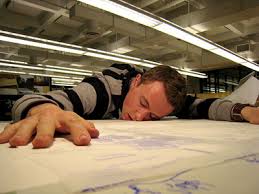 The Covid-19 pandemic has caused, in addition to a health crisis, an unprecedented crisis of work and education. Many businesses and schools have closed, or soon will; those that survive will not look or function the same after the pandemic as they did before. The only certainty is that the old ways are gone, and new ways must be created.
The Covid-19 pandemic has caused, in addition to a health crisis, an unprecedented crisis of work and education. Many businesses and schools have closed, or soon will; those that survive will not look or function the same after the pandemic as they did before. The only certainty is that the old ways are gone, and new ways must be created.
As society develops new structures for the future of work and education, now is a perfect opportunity to adjust the scheduling of these activities so they are consistent with current scientific knowledge about sleep. This would mark a big change from past practices. The basic human need for sleep has rarely been a factor in such discussions. But a neglect of sleep science is no longer tenable. The field of chronobiology (the study of the body as a 24-hour system) has grown tremendously in recent years, showing how sleep is an indispensable part of healthy functioning and conscious clarity in waking. Poor sleep weakens the immune system and makes it harder to recover from illness. It diminishes the cognitive ability to learn new information and remember it later. Chronic insomnia is a major factor in several maladies including obesity, diabetes, heart disease, depression, and substance abuse.
Researchers have also found significant variations in the length, timing, and quality of people’s sleep. For instance, children and adolescents need much more sleep than do adults. Women tend to have more insomnia than men. Some people are “polyphasic” sleepers, meaning they sleep in several smaller amounts of time over the 24-hour cycle rather than all at once (monophasic sleepers). Some people do well with 6 hours of sleep a night, others need at least 8 or 9. Some people are most alert early in the morning, while others are slow to awaken and only feel truly conscious late at night.
All of this is to say, there is no right or normal way of sleeping. There is only what makes you and your body feel rested.
These two basic findings of sleep science—the necessity and variability of sleep—have important implications for how work and school activities are scheduled. For example, it’s not healthy for children, especially teenagers, to start their school days too early, or stay up too late doing homework. It’s not healthy for employees to work on shifts far out of sync with their natural sleep cycles, or to travel frequently to places in different time zones. It’s not healthy for schools or businesses to establish a single schedule governing the activities of a large group of people without building in flexibility for the significant number of people whose bodily rhythms will need a somewhat different schedule to stay optimally functional.
It often takes time for scientific research to overcome entrenched cultural attitudes. Such will hopefully be the case with sleep, despite the persistence of contrary beliefs. From Thomas Edison to Elon Musk and President Trump, a view of sleep as nothing but wasted time has prevailed among many Americans. Denying the need for sleep has become a symbol of heroic devotion to productivity, innovation, and success. Anyone who believes otherwise is simply weak or lazy, a slacker with no drive.
That attitude should be left behind as an artifact of the pre-pandemic world. The truth is that people who get adequate amounts of sleep far outperform their sleep-deprived peers—they are more alert, emotionally balanced, and capable of complex thought, and less likely to get sick or have accidents. Perhaps most importantly given the enormous challenges facing society today, people with sound sleep patterns are also more creative, better able to respond adaptively to unusual or unexpected circumstances as compared to sleep-deprived people.
The science is clear, if we choose to heed it. The path to a healthier, more productive, and more resilient future for students and workers begins with simply letting them get the sleep they need.
Note: this post first appeared in Psychology Today on August 24, 2020.

 Yes, but only if you’re very careful.
Yes, but only if you’re very careful.